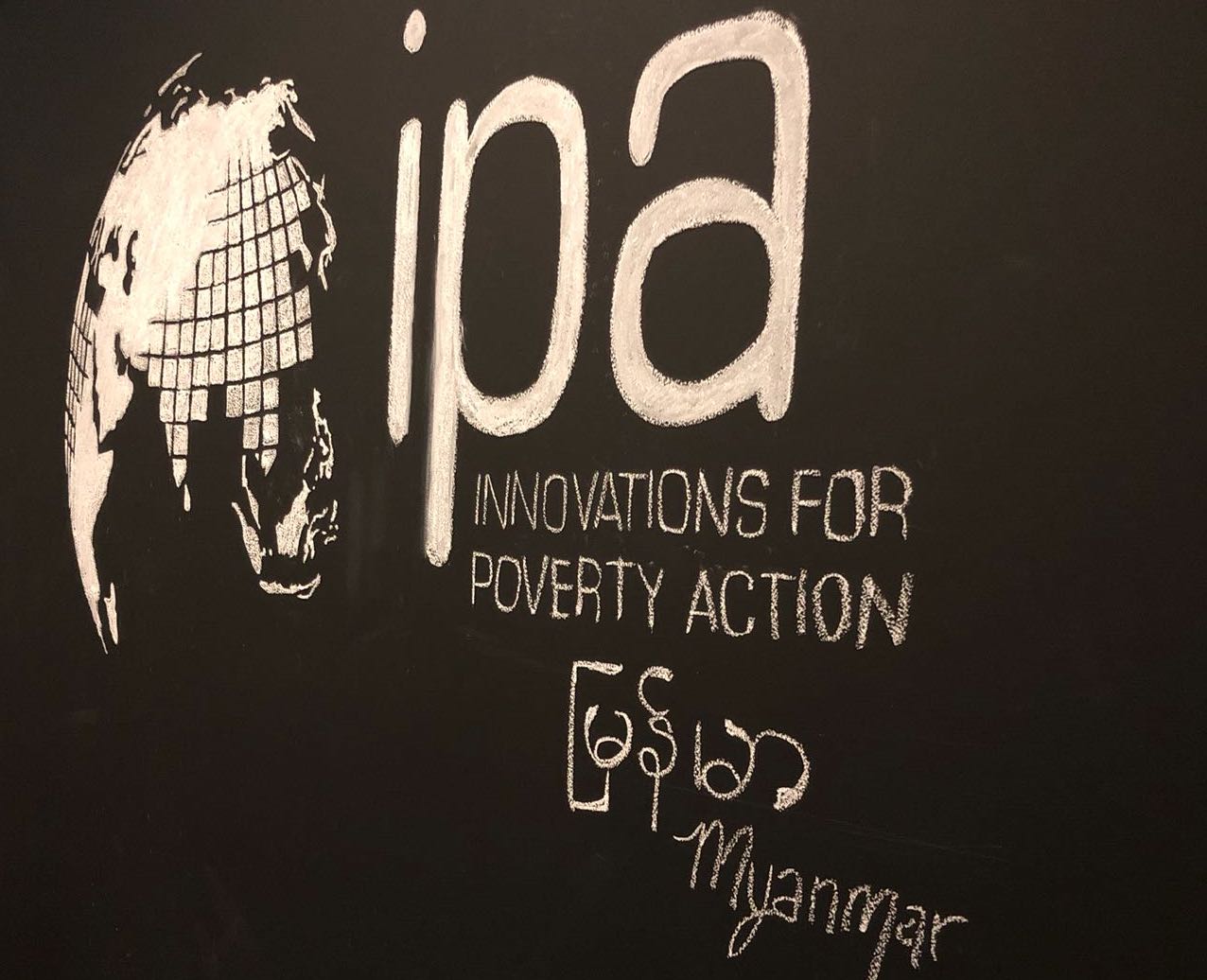IPA Myanmar: Resilience in the Face of Adversity

In the wake of Myanmar's 2021 military coup, the landscape for non-governmental organizations and research institutions shifted dramatically. Innovations for Poverty Action (IPA) is now faced with the difficult decision to close its Myanmar office. This closure marks the end of an era characterized by resilience, adaptation, and unwavering commitment to generating strong evidence and equipping decision-makers to use evidence in challenging circumstances.
The IPA Myanmar office began with a modest team of three dedicated individuals in 2015 and rapidly evolved into a research powerhouse managing over 30 projects. With staff in Yangon, Nay Pyi Taw, and Mandalay, IPA Myanmar's diverse portfolio spanned crucial areas such as health, agriculture and food security, financial inclusion, livelihoods, social protection, gender and equality, energy and sustainability, and education.
This diverse portfolio brought over 30 researchers to start or expand their projects in Myanmar, including some of the first randomized evaluations in the country. They collaborated closely with IPA to design rigorous research studies, implement effective data collection methods for hard-to-reach populations, and produce high-quality data. Additionally, the office played a key role in establishing an evidence-to-impact ecosystem; pioneering high-quality large-scale remote phone surveys; and building partnerships between researchers, donors, policymakers, and practitioners. As Mun Pan Aung, the Research and Business Development Manager, reflects, "We prioritized the uptake of research findings and our team is proud of producing the highest quality data to inform our partners’ programs and policy decisions."
Adapting to a New Reality
The military coup brought unprecedented challenges. Young men are facing conscription, while NGOs found themselves under intense scrutiny, unable to collect data freely. This adverse situation affected IPA staff work-wise and personally, extending to their families, relatives, and friends. In this new reality, however, the IPA Myanmar team demonstrated remarkable adaptability and resilience.
"We had to be really flexible," recalls Mun. “The team developed creative strategies to continue our vital work. When security checkpoints became a risk for staff carrying tablets, the team pivoted to remote and hybrid data collection methods, relying more on phone calls.” These adaptations weren't without consequences. Younger enumerators, fearing for their safety, stepped back from fieldwork. Despite these obstacles, the team persevered, driven by the importance of our work.
Amidst the post-coup turmoil, IPA Myanmar's leadership recognized the need to support the team beyond just operational concerns. They provided mental health support and ensured financial stability by offering longer-term contracts. "We needed to think about the people," IPA Myanmar management emphasized, highlighting the human-centric approach that guided their decisions. This commitment to our staff is evident in the office’s approach to the inevitable downsizing. "We have been intentionally slow in letting people go," Mun admits, a testament to the deep bonds formed within the team.
Closing a Chapter of Strength and Dedication
As IPA Myanmar prepares to close its doors, the mood is one of pride tinged with sadness. Afke Jager, the former Country Director who worked in Myanmar between 2019-2023, recalls, "Just as trees grow deeper roots in storms, I witnessed my dear Myanmar colleagues draw strength and resilience amid adversity. Despite daily power cuts, soaring inflation, and security challenges, it was remarkable how our team—and the people we worked with—remained steadfast in their commitment to research.”
The office that once bustled with 14 full-time staff members has operated with just five for the past few months and is closing out at the end of September. Yet, its impact resonates far beyond its numbers. IPA Myanmar has left an indelible mark on the country's development and research landscape.
Looking Ahead
While the closure of IPA Myanmar is undoubtedly a loss for the research community, the legacy of resilience, adaptability, and commitment it leaves behind is invaluable. The experiences and lessons learned in Myanmar will continue to inform IPA's work globally, especially in challenging environments. As we bid farewell to IPA Myanmar, we celebrate the dedication of our team members who, in the face of adversity, continued to champion evidence-based decision-making. Their work, conducted under the most trying circumstances, stands as a testament to the power of research in driving positive change, even in the darkest of times.
The story of IPA Myanmar serves as an inspiration to researchers and development practitioners worldwide, reminding us of the importance of flexibility, empathy, and unwavering commitment to our mission, no matter the obstacles we face. We extend our deepest gratitude to our donors, who believed in the transformative power of rigorous evidence to guide decision-making; to our partners, who fostered a culture of learning to truly understand the impact of their work; and to our dedicated network of researchers, who committed to building strong evidence in a context where little existed.












